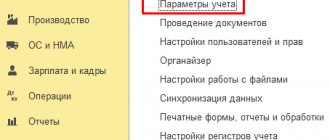Payroll calculation is a labor-intensive and painstaking procedure. Despite the widespread automation of this process, an accountant is not immune from errors. Failures in the operation of computer equipment also occur, which can result in incorrect calculations and overpayment of wages to employees.
Having discovered an error, the accountant often makes an automatic deduction from the next month's accruals based on settlements with the employee, making the appropriate entries in accounting. Is such a “simple” way out of the situation legal? In what cases does an organization have no right to withhold excess wages paid? Is an accountant responsible for errors in payroll calculations? Let's find out in the article.
Is it possible to pay wages to a non-resident through a cash register ?
Returns are not always possible
It should be said right away that “automatic” deductions of amounts overpaid to an employee from the next month’s wages or failure to issue part of the wages in cash from the cash register under the same conditions are illegal.
Resolving an unpleasant situation for an accountant should begin with receiving a statement from the employee, in which he asks to withhold the excess amount of money received or undertakes to pay it in cash voluntarily.
It is possible to do without written consent only in some cases described in the Labor Code of the Russian Federation (Article 137):
- the presence of a counting error, i.e. such an error that can be attributed to arithmetic;
- the calculation was made on the basis of false information received from the employee (for example, false documents for personal income tax deduction);
- the calculation was made on the basis of false information from the primary documents for calculating wages (for example, according to the documents, the production output standard was met, but in fact it was not).
As a rule, such situations, in particular, the submission by an employee of false information that affects the calculation of “salary” amounts, are resolved in court (see the Labor Code of the Russian Federation, the same article).
If the employee has expressed in writing his consent to repay the overpayment, the employer can withhold it only for a month after the end of the period specified for the return of advances, debts, and incorrectly accrued amounts of payments.
How to arrange the release of deposited wages from the cash desk by proxy?
Illness or call to work while on vacation
The employee went on vacation, but was recalled from it. From the same day, his salary is calculated, and vacation pay for days of work must be withheld.
If an employee gets sick while on vacation , he can:
- Extend your vacation for days of incapacity. The accountant will not have to recalculate anything.
- Transfer your rest time to another period. Then you need to accrue disability benefits for sick leave days and withhold vacation pay.
Counting error and judicial practice
The presence of a counting (arithmetic) error is the most common argument of the employer when withholding overpaid amounts of wages. However, judicial practice in this area most often does not work in favor of organizations.
Example: The Moscow Regional Court, in its ruling No. 33-19764 dated 10/12/10, expressed the opinion that an overpayment cannot be a counting error, but is a consequence of the employer’s incorrect application of labor legislation. According to the judges, the overpayment cannot be attributed to the amounts of unjust enrichment (Civil Code of the Russian Federation, Art. 1109). The employee is not obliged to return the funds overpaid to him. In addition, not all courts recognize a malfunction in an accounting program as a counting error.
Example: The Sverdlovsk Regional Court, in its ruling in case No. 33-7642/2016 dated 04/21/16, did not recognize a technical counting error, but the Samara Regional Court in its ruling No. 33-302/2012 dated 01/18/12 did.
Judicial practice on the application of Art. 137 of the Labor Code clearly indicates that the following cannot be recognized as a counting error:
- payment for a longer vacation than the employee is entitled to by law;
- payment of a larger bonus;
- erroneous payment of double wages for the period.
This is evidenced by numerous decisions of courts of all levels, up to and including the Supreme Court (definition No. 59-B11-17 of 01/20/12).
On a note! Rostrud, in its letter No. 3044-6-0 dated 09-08-07, expresses the point of view according to which, even if there is an undeniable accounting error, the employee’s written consent is required to repay the difference at his expense.
Documentation of the return of excess payments
Having discovered an error, the accountant is obliged to report it to the management of the company. Next, an act is drawn up, which records the fact of overpayment, amount, accrual period and other essential information. Members of the commission signing the act may be: accountant, chief accountant, cashier, etc.
The second copy of the document or its copy is sent to the employee in relation to whom the error occurred. An official letter of notification about the need to repay the overpaid amount within a certain period is attached to the act.
If the employee does not object, then, based on his application, the amount is paid in cash or by non-cash deduction from wages on other terms agreed with the administration. Often such repayment occurs in installments. According to Art. 138 of the Labor Code of the Russian Federation, as a general rule, deduction is possible in the amount of no more than 20% of each salary. It should be taken into account that the employee, in addition to the specified amount to be repaid, may have other deductions.
If an employee agrees in writing to repay the debt in cash at the cash desk or voluntarily deposit it into the company’s account, but this period has expired and the debt has not been repaid, then within the next month the manager issues an order to deduct the amount of the debt from the employee’s salary. If the employee ignores the notice or refuses to repay the overpayment, the employer may go to court.
The issue with an employee who, upon dismissal, received more than what was required by law, is resolved in the same manner as indicated above. It is advisable to immediately indicate in the notice the possibility of going to court if the debt is not repaid. Dismissed employees in most cases refuse to voluntarily repay overpayments.
How to formalize and reflect in accounting the return to the cash desk of wages overpaid to an employee?
How to recalculate
There is no single procedure for recalculation - all situations are individual. Here are the key rules and recommendations:
- Corrections can be made manually. Or use specialized accounting programs for calculations.
- Make adjustments to calculations only on the basis of administrative documentation.
- If you need to make a deduction from earnings, be sure to obtain the employee’s consent.
- Follow the deadlines for recalculations when errors are identified. It is possible to correct an accounting deficiency in the accrual only within a calendar month.
IMPORTANT!
It is impossible to withhold wages without the written consent of a subordinate, regardless of the types of payments and the reasons for the transfer. An employee can challenge any actions of the employer in court.
Accountant's responsibility
An accountant may be held financially liable under the law if it was not possible to repay the overpayment at the expense of the employee. The basis for holding the accountant accountable can be an act recording (Labor Code of the Russian Federation, Article 247):
- the amount of material damage;
- the reason for the loss.
The amount of loss can be repaid by an accountant in two ways:
- if there is a liability agreement with him, repayment occurs in full;
- if there is no contract of liability, repayment occurs in the amount of average monthly labor payments (Labor Code of the Russian Federation, Articles 244, 248).
If the accountant does not agree to repay the amount of the error voluntarily or the month period discussed above has expired, the issue of collection is decided exclusively by the court.
On a note! The full financial responsibility of an accountant can be fixed in an employment contract with him.
Arguments of the court
1. According to Part 1 of Art. 1212 of the Civil Code (hereinafter referred to as the Civil Code), a person who received property or retained it at the expense of another person (victim) without sufficient legal grounds is obliged to return this property to the victim. However, in Art. 1215 of the Civil Code provides for cases when such property is not subject to return. Thus, wages and equivalent payments are not subject to return if:
- there is no accounting error when calculating these payments;
- there are no dishonest actions on the part of the acquirer.
2. In this dispute, the paper version of the report card for November 2015 contains visible corrections in the information about the defendant’s presence at work in the period from November 2 to November 6, 2015. However, these corrections were not properly certified. No corrections were made to the electronic time sheet.
The accountant calculated the salary based on these two timesheets. There were no accounting errors when calculating the defendant's salary.
Also, the plaintiff did not present facts that prove the defendant’s bad faith.
3. In paragraph 24 of the Plenum of the Armed Forces of Ukraine dated December 24, 1999, No. 13 “On the practice of application by courts of legislation on wages”, it is explained that counting errors include incorrect calculations, calculation of wages for the same period twice, etc. Not refer to counting errors not related to calculations, errors in the application of the law or other regulations, etc.
Calculation of wages based on recorded incorrect data on an employee’s working hours does not constitute a counting error. Therefore, there are no grounds for collecting the disputed amount from the defendant.
Postings
If you discover an overcharged and overpaid amount, you should remember that part of this amount is income tax. Thus, the excess payment is “split” into two independent amounts and reflected in different entries.
First, the overpayment as a whole is reversed, using the same entries by which it was accrued: Dt20, 23, 26 Kt70 - reversal for the amount of the overpayment (payments to the Funds for overpayment are similarly reversed).
Then personal income tax is reversed: Dt70 Kt68/NDFL – reversal from the overpayment amount (13%).
The remaining amount overpaid to the employee is reflected in account 73 with the opening of the corresponding sub-account: Dt 73 Kt 70.
The employee voluntarily pays off the debt by depositing funds into the cash register or by deducting from the salary. It is also possible to deposit funds into the company's current account: Dt50,51,70 Kt73.
If for some reason the debt cannot be collected, then the following entries are made:
- Dt76 Kt 73;
- Dt 91/2 Kt 76.
Error. Incorrect amount to be paid for salary in the statement
When creating a statement for the payment of wages for September, the accountant discovered that the amount in the To be paid includes the debt for August and does not correspond to the organization’s wage debt to one of the employees of A.V. Kuznetsova.
From the balance sheet for the account it is clear that in front of the employee Kuznetsova A.V. The following salary arrears have arisen:
- for September - 26,100 rubles.
Thus, the discrepancy is obvious - the program shows different amounts of arrears in payment of wages to employee A.V. Kuznetsova. :
- in the payroll statement - 27,904.04 rubles;
- account credit balance – RUB 26,100.00;
- difference (error) – RUB 1,804.04.
But the program will not be able to detect an error based on accounting entries, which is reflected in the salary payment slip. Since 1C has created a special subsystem for accounting for salaries and personnel, which is based on savings registers.
The accumulation register Salary to be paid is responsible for an error in filling out the salary payment slip.
See also How to find out which register moves what?
Results
- Excess accruals and wage payments can be returned to the organization without any problems only with the written consent of the employee in respect of whom the overpayment was made, and only if the one-month period is observed after the one set for the employee to voluntarily repay.
- In other cases, the return may be contested, including in court, despite the legally established possibility of debt repayment. A detected error in payments must be recorded in an act signed by the organization’s internal commission. The employee must be familiarized with the act.
- An accountant who makes a mistake bears financial responsibility for it in accordance with the law.
- Correspondence accounts used to account for overpayments of wages are reversal entries of previously made entries. The excess amount paid in hand is reflected in Dt 73 account. Its repayment by the employee is reflected in the Dt of the corresponding accounts, depending on the method of repayment. If the loss cannot be recovered, it is transferred to Dt 76 and then recorded according to Dt 91/2.
Overpaid wages - what to do with personal income tax and insurance contributions
When an overpayment is returned to an employee, the amount of accrued income changes downward, which leads to a decrease in the tax base, which means the amount of tax withheld decreases.
If the amount of the overpayment has already been reflected in the 6-NDFL report submitted to the tax authority, you need to adjust the report:
- the adjustment indicates the reduced amounts of income and calculated personal income tax;
- the tax withheld is reflected taking into account the amount withheld from the returned salary, i.e. There is an overpayment for personal income tax.
If you have overpaid wage taxes, what should the tax agent-employer do? The tax that was excessively withheld and transferred to the budget, upon a written application from the tax agent, can be returned or offset against future payments (Articles 78, 231 of the Tax Code of the Russian Federation).
Overpayment will also arise for insurance premiums if they were accrued for its amount, therefore the necessary adjustments should be made in the RSV and 4-FSS forms. Excessively paid contributions can be offset against future payments or returned to the account of the policyholder-employer in accordance with Art. Tax Code of the Russian Federation and Art. 26.12 of Law No. 125-FZ of July 24, 1998.
If the employee refuses to return the overpayment and the court finds that he is right, there will be no overpayments for personal income tax and insurance contributions and the employer will not need adjustments in tax accounting.





